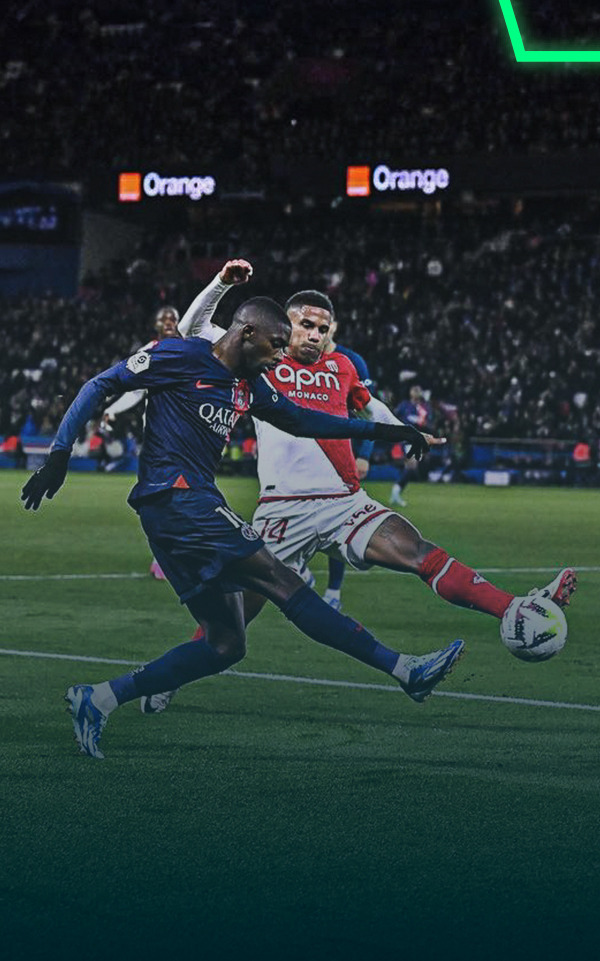Television rights in France: is the saga coming to an end?

Television rights in France: is the saga coming to an end?
DAZN and BeIN Sports are on the verge of securing the domestic broadcasting rights for Ligue 1 for €500 million ($546 million) per season until 2029. While the details of the agreement are still being finalized, top-tier French football clubs have already reached a preliminary agreement.
In this new arrangement, DAZN will broadcast eight games per matchday, while BeIN will air the remaining prime-time game. The contract will also include an exit clause for both DAZN and the Ligue de Football Professionnel (LFP) in 2027.
This amount, combined with the €40 million ($43.6 million) that BeIN is paying for exclusive rights to Ligue 2 and the €160 million ($175 million) expected from the sale of international broadcasting rights, will represent an annual income of €700 million ($764 million) for at least the next two years. This amount falls short of the €1 billion ($1.1 billion) target set by the LFP, which in 2023 even canceled a formal auction due to unsatisfactory bids, largely due to a reduced valuation of the product following the departure of stars like Lionel Messi, Neymar Jr., and more recently, Kylian Mbappé. Since then, negotiations for the French league's television rights have been ongoing without a foreseeable conclusion.
The value of the new deal is also lower than previous agreements. Amazon paid €275 million ($300 million) annually for broadcasting eight games per matchday, while Canal+ broadcasted two games through a sublicensing agreement worth €330 million ($360 million) with BeIN. BeIN also held the annual international rights for €70 million ($76.4 million) and the rights to Ligue 2, with all agreements concluded last season.
Amazon's reduced deal followed the collapse of Ligue 1's previous annual contract worth €814 million ($888 million) with Mediapro, which had launched the Telefoot network to broadcast top-tier French football. This case even led Canal+ to legally challenge the redistribution of rights to Amazon. Although the challenge was not upheld by the competent authorities, Canal+, in disagreement with the LFP, withdrew from the race for Ligue 1 broadcast rights. Simultaneously, it was widely considered unlikely that Amazon would renew its contract, factors that together contributed to a snowball effect.
In the absence of an agreement that minimally met its financial demands, the LFP had planned to launch a direct-to-consumer streaming service, providing access to games without intermediaries. Although it was believed that this solution could attract two million subscribers and generate revenue of €578 million ($630 million) in the first season, many considered this forecast overly optimistic and risky compared to partnering with established broadcasters that guarantee revenue.
These agreements bring an end to a long period of uncertainty for fans, broadcasters, and clubs, who had to budget for the new sports season without truly knowing the value of their revenues.
Looking ahead, Ligue 1's focus should be on strengthening relationships with DAZN and BeIN Sports to enhance the product and boost audience growth, reducing the revenue gap with major European leagues and ensuring financial stability in the global sports broadcasting landscape.
News
Historic: Women's football clubs surpass €100 Million in revenue
For the first time ever, the combined revenue of top women’s football clubs in key markets has exceeded ...
How to succeed in the Sports Industry? Four tips from Rafael Nadal
Rafael Nadal is renowned for his excellence, determination, and relentless pursuit of victory. With 22 Grand Slam ...
Al-Nassr signs Esports player for record-breaking fee
João Afonso, world champion in FIFA and EA Sports FC, known as "Jafonso," has made history with the most ...
Is Netflix prepared to stream major sporting events? Insights from the Jake Paul vs. Mike Tyson fight
The live broadcast of the Jake Paul vs. Mike Tyson boxing match on Netflix marked a significant step for the platform, ...
European Leagues and FIFPro vs. FIFA: Lawyer Gonçalo Almeida explains the complaint to the European Commission
The European Leagues, chaired by Pedro Proença, along with FIFPro, has filed a complaint with the European ...
